#angels in islam
Explore tagged Tumblr posts
Text
The Prophet Muhammad (peace be upon him)
By sharing this engaging blog post, you can attract parents, teachers, and guardians to guide their children in taking the online quiz, helping them learn and grow together in an enjoyable way. Please share, subscribe and comment!Jazaakom Allahu khair!
#angels in islam#belief in Allah#childrens books#dua#Eid#fasting#Five Pillars of Islam#foundations of islam#hajj#holy books in islam#iman#islam#islamic books for children#islamic quiz#judgement day#Muslim Children Books#pilgrimage#Prayer#prophet muhammad#prophets#Prophets in Islam#qadr#quiz#quran#ramadan#salah#sawm#seerah#shahadah#six pillars of iman
0 notes
Text

Do you think maybe that there’s a chance you are REALLY, REALLY behind on current events & the statue is the beast? I mean literally. Like the statue sits there until the apocalypse & then it turns out it’s an actual robot that a consciousness can switch into when they decide it’s the right day. I’m sorry to be scary, but It is. It’s not just a warning. This is really happening, just like all those other signs you see are also there. It’s there because it’s supposed to be hidden in plain sight to then be switched on, just like other things/statues/etc hidden in plain sight. You’ve been warned many, many times, but each time until the end there’s always a chance to change the future. It’s never hopeless, but you have to come to terms with the fact this has been right in front of you for a very long time. Do you want to take it seriously or do you want to ignore it till it’s too late? The decision is always in your hands.
#beast#christian bible#bible#christianity#angel#religion#faith#jewish#writing#holy bible#jesus#christian faith#holy spirit#islamic#islam#abrahamic religions#resurrection#scary#horror
824 notes
·
View notes
Text

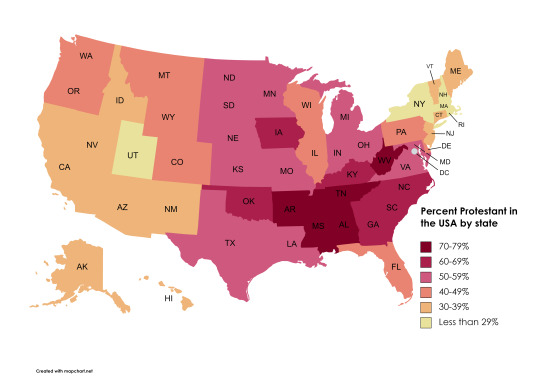

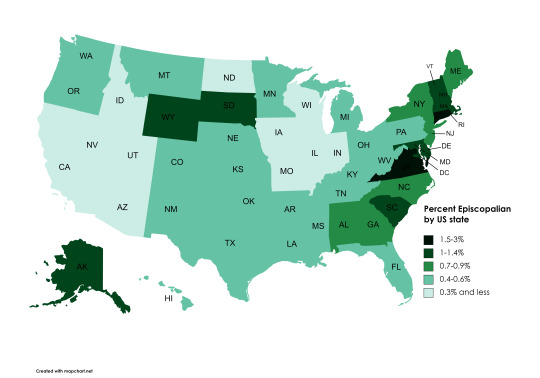


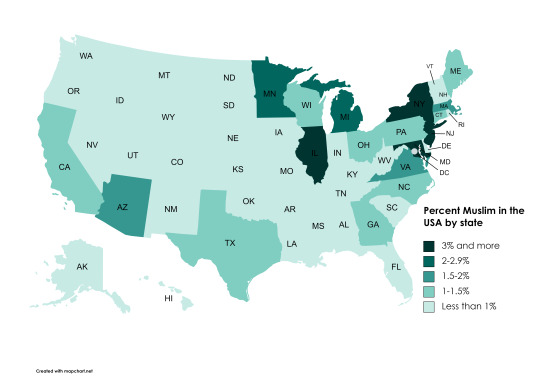



Some of the many religions of the USA
Catholic Christian, Protestant Christian, Jewish, Episcopal Christian, Mormon Christian, Irreligion, Islam, Buddhism, Eastern Orthodox Christian, Hindu
#map#maps#cartography#usa#data#americas#geography#religion#christians#christblr#christianity#jewish#judaism#islam#muslims#hindu#angels in america#mormon#lds#mormonism#Catholic#folk catholic#catholicism#california#new york#faith#religions
934 notes
·
View notes
Text
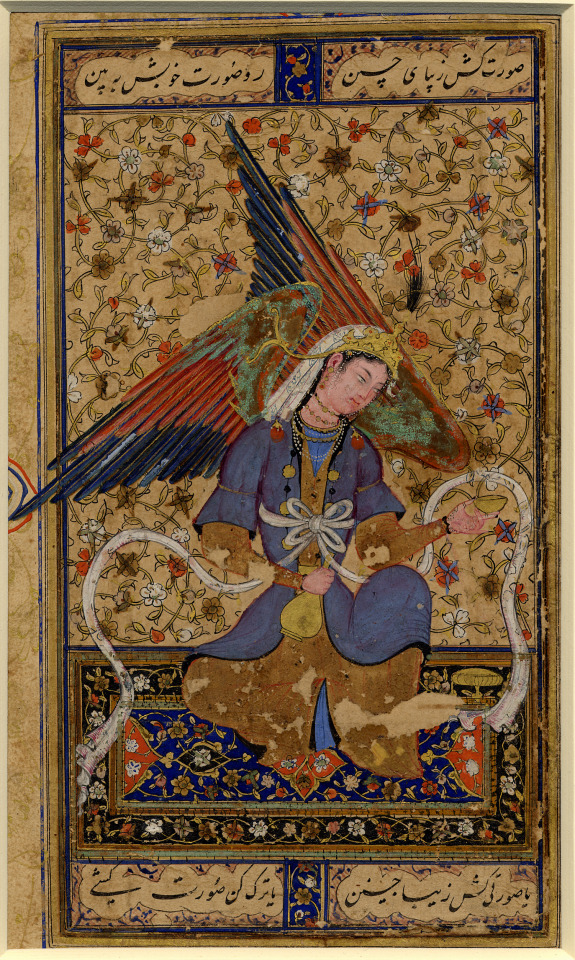
An angel, ca 1555 AD.
Bukhara, Uzbekistan
British Museum
538 notes
·
View notes
Text

عن أبي هريرة رضي الله عنه،عن النّبي صلى الله عليه وسلم قال " فضل صلاة الجميع على صلاة الواحد خمسٌ وعشرون درجةً، وتجتمع ملائكة اللّيل وملائكة النّهار في صلاة الصّبح ". يقول أبو هريرة اقرءوا إن شئتم {وَقُرْآنَ الْفَجْرِ إِنَّ قُرْآنَ الْفَجْرِ كَانَ مَشْهُودًا}. صحيح البخاري حديث ٤٧١٧
Abu Huraira said, "The Prophet (peace be upon him) said, 'A prayer performed in congregation is twenty-five times more superior in reward to a prayer performed by a single person. The angels of the night and the angels of the day are assembled at the time of the Fajr (Morning) prayer." Abu Huraira added, "If you wish, you can recite:-- 'Verily! The recitation of the Qur'an in the early dawn (Morning prayer) is ever witnessed (attended by the angels of the day and the night).' (17.78) Sahih AlBukhari 4717
قد بيَّن فى هذا الباب المعنى الذى أوجب التفضيل لشهود الفجر فى جماعة، وهو اجتماع ملائكة الليل، والنهار فيها، ولقد قال عمر بن الخطاب: لأن أشهد الفجر فى جماعة أحب إلى من أن أقوم ليلة، وقد روى أبو هريرة عن الرسول أن ملائكة الليل والنهار يجتمعون فى صلاة العصر أيضًا. قال المهلب: فلما خص الفجر بشهود الملائكة لها، وكان مثل ذلك فى صلاة العصر، وأشبهت الفجر فى هذه الفضيلة، أمر الرسول بالمحافظة على العصر ليكون من حضرهما ترفع الملائكة عمله، وتشفع له. قال المؤلف: ويمكن أن يكون اجتماع الملائكة فى الفجر والعصر هُما الدرجتان الزائدتان على الخمسة والعشرين جزءًا فى سائر الصلوات التى لا تجتمع الملائكة فيها، والله أعلم، وإنما قلت هذا من قول أبى هريرة: سمعت الرسول يقول: (تفضل صلاة الجماعة صلاة أحدكم وحده بخمسة وعشرين جزءًا، وتجتمع ملائكة الليل وملائكة النهار فى صلاة الفجر) ، فذكر اجتماع الملائكة فى الفجر بواو فاصلة، واستأنف الكلام، وقطعه من الجملة المتقدمة، فدل ذلك على أن اجتماع الملائكة يوجب فضلاً ودرجة زائدة على الخمسة وعشرين، فصارتا درجتين للفجر والعصر، ليستا لغيرهما من الصلوات. شرح صحيح البخاري لابن بطال ()
وَفِي رِوَايَةٍ بِسَبْعٍ وَعِشْرِينَ دَرَجَةً وَالْجَمْعُ بَيْنَهَا مِنْ ثَلَاثَةِ أَوْجُهٍ أَحَدُهَا أَنَّهُ لَا مُنَافَاةَ بَيْنَهَا فَذِكْرُ الْقَلِيلِ لَا يَنْفِي الْكَثِيرَ وَمَفْهُومُ الْعَدَدِ بَاطِلٌ عِنْدَ جُمْهُورِ الْأُصُولِيِّينَ وَالثَّانِي أَنْ يَكُونَ أَخْبَرَ أَوَّلًا بِالْقَلِيلِ ثُمَّ أَعْلَمَهُ اللَّهُ تَعَالَى بِزِيَادَةِ الْفَضْلِ فَأَخْبَرَ بِهَا الثَّالِثُ أَنَّهُ يَخْتَلِفُ بِاخْتِلَافِ أَحْوَالِ الْمُصَلِّينَ وَالصَّلَاةُ فَيَكُونُ لِبَعْضِهِمْ خَمْسٌ وَعِشْرُونَ وَلِبَعْضِهِمْ سَبْعٌ وَعِشْرُونَ بحسب كم��ل الصلاة ومحافظته على هيآتها وَخُشُوعِهَا وَكَثْرَةِ جَمَاعَتِهَا وَفَضْلِهِمْ وَشَرَفِ الْبُقْعَةِ وَنَحْوِ ذَلِكَ فَهَذِهِ هِيَ الْأَجْوِبَةُ الْمُعْتَمَدَةُ وَقَدْ قِيلَ إِنَّ الدَّرَجَةَ غَيْرُ الْجُزْءِ وَهَذَا غَفْلَةٌ مِنْ قَائِلِهِ فَإِنَّ فِي الصَّحِيحَيْنِ سَبْعًا وَعِشْرِينَ دَرَجَةً وَخَمْسًا وَعِشْرِينَ دَرَجَةً فَاخْتَلَفَ الْقَدْرُ مَعَ اتِّحَادِ لَفْظِ الدَّرَجَةِ وَاللَّهُ أَعْلَمُ… النووي على مسلم ()
قال ابن جرير الطبري رحمه الله: " وأما قوله: وَقُرْآنَ الْفَجْرِ فإن معناه: وأقم قرآن الفجر: أي ما تقرأ به صلاة الفجر من القرآن، والقرآن معطوف على الصلاة في قوله: أَقِمِ الصَّلاةَ لِدُلُوكِ الشَّمْسِ، وكان بعض نحويي البصرة يقول: نصب قوله: وَقُرْآنَ الْفَجْرِ على الإغراء، كأنه قال: وعليك قرآن الفجر، إِنَّ قُرْآنَ الْفَجْرِ كَانَ مَشْهُودًا يقول: إن ما تقرأ به في صلاة الفجر من القرآن كان مشهودا، يشهده فيما ذكر ملائكة الليل وملائكة النهار، وبالذي قلنا في ذلك قال أهل التأويل، وجاءت الآثار عن رسول الله صلى الله عليه وسلم" انتهى من " جامع البيان " (17/520).
وقال الحافظ ابن كثير رحمه الله: "وقوله تعالى: وَقُرْآنَ الْفَجْرِ يعني: صلاة الفجر" انتهى من "تفسير القرآن العظيم" (5/102).
وقال القرطبي رحمه الله: "وعبر عنها بالقرآن خاصة دون غيرها من الصلوات؛ لأن القرآن هو أعظمها، إذ قراءتها طويلة مجهور بها حسبما هو مشهور مسطور" انتهى من "الجامع لأحكام القرآن" (10/304). الإسلام سؤال وجواب ()
This Hadīth indicates that a prayer in congregation is twenty five times better and greater than a prayer offered individually. Then, it mentions that the angels of the night and the angels of the day assemble during the Fajr prayer. Thereafter, Abu Hurayrah (may Allah be pleased with him) cited in support of this meaning the verse that says: {Indeed, the recitation of dawn is ever witnessed} [Sūrat al-Isrā': 78]. In other words, the Fajr prayer is witnessed and attended by the angels of the day and the angels of the night. It is referred to as Qur’an here because it is Sunnah to prolong the recitation of the Qur’an therein more than in other prayers, and given the merit of its Qur’an’s recitation, which is witnessed by Allah, the Almighty, and the angels of the night and the angels of the day. Hadith Translation/ Explanation : English Urdu Spanish Indonesian Bengali French Turkish Russian Bosnian Indian Chinese Persian Tagalog Kurdish Portuguese : https://hadeethenc.com/en/browse/hadith/11286
#حديث#أحاديث نبوية#الرسول صلى الله عليه وسلم#صلى الله عليه وسلم#النبي محمد صلى الله عليه و آله وسلم#رسول الله صلى الله عليه وسلم#محمد صلى الله عليه وسلم#صلاة#صلاة الفجر#الجماعة#صلاة الجماعة#المسجد#صلاة العصر#ملائكة#قرآن#قرآن الفجر#القرآن الكريم#hadith#ahadeth#hadeth#sunnah#islam#muslim#hadith sahih#hadiths#prayer#fajr#fajr prayer#angels#quran
54 notes
·
View notes
Text

25 notes
·
View notes
Text

“Imam Ali (RA) at the death of Fatima (FA)” by Unknown Artist.
51 notes
·
View notes
Text

the one day I was finally able to sit upright and not be in pain and i chose to draw Jibril being the absolute worst angel known to all mankind
#anthro#furry#dog#shark#angel#Jibril = basically the islamic Gabriel#his internet username really is probably just HELLA_GAYBRIEL in all caps#Suspicious Fish Halo also making an appearance as always. What will they do??
166 notes
·
View notes
Text



recitation
prints of this are available in my shop and progress vids are on my instagram~ also, my september commission slots are now open!!
#illustration#digital art#art#artists on tumblr#drawing#sketch#painting#paint tool sai#my art#angel#gabriel#religion#christianity#islam#archangel gabriel#character illustration
27 notes
·
View notes
Text
Named Angels
Fallen angels are not included. Neither are gnostic angels because I'm tired.
Aker: Named in the Greek Apocalypse of Ezra as one of the nine angels who will govern at the end of the world.
Al-Khidr: Also known as al-Khadir, Khader, Khidr, Hidr, Khizr, Kathir, Khazer, Khadr, Khedher, Khizir, Khizar, or Khilr. The Servant of God whom Moses accompanies in the Quran is identified as Al-Khidr by Islamic scholars.
Ambriel: Ambriel is an angel associated with the month of May.
Arariel: Described in the Talmud as the angel in charge of the waters of the Earth.
Ariel: An angel in Jewish and Christian mysticism. Ariel has dominion over beasts, creative forces, the North, and elemental spirits.
Arphugitonos: Named in the Greek Apocalypse of Ezra as one of the nine angels who will govern at the end of the world.
Artiya'il: An angel appearing in the hadith. Artiya'il removes grief and anxiety from humans.
Atid: One of two angels in Islamic tradition who records a person's actions. This record is used to confront each person on the Day of Judgment.
Azrael: The angel of death. Azrael is one of the four archangels in Islam.
Beburos: Named in the Greek Apocalypse of Ezra as one of the nine angels who will govern at the end of the world.
Camael: Also known as Chamuel, Khamuel, Camiel, Cameel and Camniel. One of the twelve Kabbalah angels, Camael is assigned to the fifth sephirah in the tree of life.
Cassiel: Also known as Qafsiel or Qaspiel. In Jewish and Christian mysticism, Cassiel is described by various roles, such as the angel of Saturn the angel of the moon, the angel of tears, and the angel of temperance. Cassiel is sometimes said to preside over the death of young men.
Dobiel: Also known as Dubbiel. Dobiel is the guardian angel of Ancient Persia.
Gabriel: An angel who announces God's will to men. Gabriel is considered in archangel in Jewish, Christian, and Islamic traditions. Gabriel appears to Daniel to explain his prophetic visions. Gabriel foretold the birth of John the Baptist to Zechariah and the Annunciation of Jesus to Mary. Gabriel appeared twice to Muhammad. In the church of Jesus Christ of Latter Day Saints, Gabriel lived a mortal life as the prophet Noah. Gabriel was named in the Greek Apocalypse of Ezra as one of the nine angels who will govern at the end of the world.
Gabuthelon: Named in the Greek Apocalypse of Ezra as one of the nine angels who will govern at the end of the world.
Haniel: Also known as Hananel, Anael, Hanael or Aniel. Haniel is sometimes listed as one of the seven archangels. In Kabbalah, Haniel is associated with the seventh sephirah.
Jegudiel: Also known as Iehudiel. Jegudiel is one of the seven archangels of the Eastern Orthodox Church tradition. Jegudiel is the patron saint of hard work and leadership and is often depicted holding a whip (as a punishment for sinners) and a crown (as a gift for the righteous).
Jerahmeel: Also known as Jeremiel, Eremiel, or Ieremihel. Jerahmeel is recognized as an archangel in Lutheran, Angelican, and Orthodox traditions. Jerahmeel is said to comfort the righteous dead in the Bosom of Abraham, or to guard heaven with St. Peter.
Jophiel: Also known as Dina, Iophiel, Iofiel, Jofiel, Yofiel, Youfiel, Zophiel, or Zuriel. In Anglican tradition, Jophiel is an archangel and in Kabbalah, Jophiel is associated with the sephirah chokmah. Some sources list Jophiel as the angel who guards the garden of Eden with a flaming sword.
Kalqa'il: Kalqa'il is an Islamic angel who guards the entrance of the fifth heaven.
Lailah: An angel appearing in the Talmud. Lailah is associated with conception, pregnancy, and the night.
Maalik: An Islamic angel of hell. Maalik carries out God's punishment on wrongdoers.
Metatron: Described in the Talmud as the heavenly scribe, Metatron is allowed to sit in the presence of God to record the deeds of Israel. Metatron was mistaken by Elisha ben Abuyah for a deity, and was subsequently lashed 60 times with a fiery rod to demonstrate that the Metatron was an angel and could be punished, unlike a god. In mystic writings, Metatron is the form Enoch took after his ascension. In Islam, Metatron is the angel of the veil and alone knows what lies beyond it.
Michael: Also known as Mika'il or Mikal. The prince of Israel and prince of the Heavenly Host. Michael is regarded as an archangel in Jewish, Christian, and Islamic tradition, and is the only angel explicitly identified as an archangel in the Christian Bible. In the book of Daniel, Michael fought the prince of Persia. In Revelation, Michael fought Satan and cast him out of heaven. Michael and Gabriel are the angels said to have shown Muhammad paradise and hell. In Jewish tradition, Michael prevented the sacrifice of Isaac by providing a ram. Seventh Day Adventists and Jehovah's Witnesses believe Michael is another name for Jesus in heaven. In the Church of Jesus Christ of Latter Day saints, Michael is the same person as Adam. Michael is named in the Greek Apocalypse of Ezra as one of the nine angels who will govern at the end of the world.
Moroni: In angel in the Church of Jesus Christ of Latter Day Saints. Moroni was the guardian of the golden plates from which Joseph Smith wrote the Book of Mormon, and appeared to Smith numerous times.
Muriel: Muriel is a Domination, a class of angel in the second angelic sphere. Muriel is associated with the month of June.
Nuriel: Regarded in some traditions as the same being as the angel Uriel. Nuriel is the angel of hailstorms and commands an army of 500,000 angels made of water and fire.
Pahaliah: Pahaliah is the angel of Redemption. Pahaliah is a throne, an class of angel in the first angelic sphere.
Puriel: Puriel accompanied Abraham on a journey to heaven. Puriel is tasked with examining the souls of those brought to heaven.
Raphael: Known in Islam as Israfel or Israfil. Raphael is regarded as an archangel in Jewish, Christian, and Islamic traditions. It is believed that Raphael is the angel in the Gospel of John who stirs the pool of Bethesda. In Islam, Raphael will blow the trumpet which signals the Day of Judgment, and the hadith lists him as the angel closest to God. Named in the Greek Apocalypse of Ezra as one of the nine angels who will govern at the end of the world.
Raqib: One of two angels in Islamic tradition who records a person's actions. This record is used to confront each person on the Day of Judgment.
Raziel: Also known as Gallitsur. Raziel is the angel of secrets and mysteries, and the keeper of all magic. In Kabbalah, Raziel is associated with the sepirah chokmak.
Riḍwan: Also known as Riswan. Riḍwan is an Islamic angel who guards the gates of heaven.
Sabrael: Sabrael is an angel appearing in the apocryphal works the Testament of Solomon and 3 Enoch.
Sachiel: Also known as Sariel, Suriel, Suriyel, Sikhael, Sixael, Satquel, Satquiel, Saquiel, Seriel, Sauriel, Saraqael, Sarakiel, Suruel, Surufel, Souriel, or Sachquiel. Sachiel is a cherub who is associated with charity and wealth.
Sahaquiel: Listed as one of the archangels in the Third Book of Enoch. Sahaquiel is attended by "496,000 myriads of ministering angels."
Samkhiel: An angel of Gehenna, Samkhiel is the angel of destruction. Samkhiel torments the wicked to cleanse their souls and eventually reuinte them with God.
Sandalphon: An archangel in mystical traditions of Judaism and early Christianity. Sandalphon is said to gather prayers and bring them to God. Some sources regard Sandalphon as an angelic ascension of Elijah.
Sarathiel: Also known as Serathiel. Sarathiel is an archangel in the Oriental Orthodox tradition.
Selaphiel: Also known as Sealtiel, Selatiel, or Selathiel. Selaphiel is regarded as an archangel in the Byzantine Catholic and Greek Orthodox traditions. Selaphiel is sometimes viewed as the angel in Revelation who offers people's prayers to God.
Uriel: Also known as Phanuel. Uriel is often depicted as a cherub and is the angel of repentance. Uriel is regarded as an archangel in Russian Orthodox, Eastern Orthodox, Ethiopian Orthodox, and Anglican traditions, as well as in Kabbalhah. Named in the Greek Apocalypse of Ezra as one of the nine angels who will govern at the end of the world.
Uziel: Also known as Usiel. Uziel is an archangel in 3 Enoch.
Yahoel: Also known as Jahoel, Jehoel, or Yaoel. Yahoel is charged with destroying idolators and restraining the Leviathian. Some sources list Yahoel as the chief angel of the Seraphim. Another lists Yahoel as one of the names of Metatron.
Zadkiel: Also known as Hasdiel. In Kabbalah, Zadkiel is an archangel associated with the fourth sephirah.
Zaphkiel: Also known as Tzaphqiel, Tzaphkiel, Zaphchial, Zaphiel, or Zelel. Zaphkiel is the chief angel of the thrones and is regarded in some traditions as the same angel as Raphael.
Zebuleon: Named in the Greek Apocalypse of Ezra as one of the nine angels who will govern at the end of the world.
Zephaniel: Zephaniel is the chief angel of the Ishim in Kabbalah.
Zerachiel: Also known as Zachariel, Zakhariel or Saraqael. An angel who leads souls to judgment and is set over those who "sin in the spirit."
Zotiel: Zotiel is an angel mentioned in the Book of Enoch.
202 notes
·
View notes
Text
The Six Pillars of Iman QUIZ
By sharing this engaging blog post, you can attract parents, teachers, and guardians to guide their children in taking the online quiz, helping them learn and grow together in an enjoyable way. Please share, subscribe and comment!Jazaakom Allahu khair!
#angels in islam#belief in Allah#childrens books#dua#Eid#fasting#Five Pillars of Islam#foundations of islam#hajj#holy books in islam#iman#islam#islamic books for children#islamic quiz#judgement day#Muslim Children Books#pilgrimage#Prayer#prophets#qadr#quiz#quran#ramadan#salah#sawm#shahadah#six pillars of iman#tawheed#three principles of islam#worship Allah
0 notes
Text
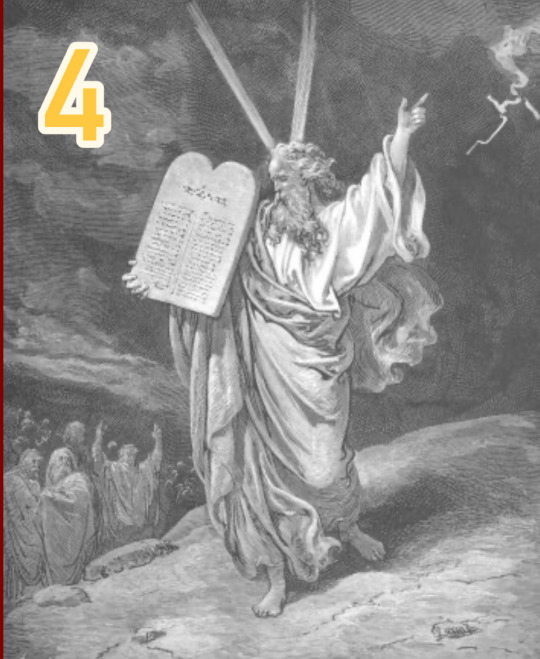
On the 10 Commandments:
——-
The Fourth Commandment Explained
———————
People often still debate the meaning of what God’s Commandments are after the numerous translations. The Orthodox Jewish Bible actually contains the transcript of that speech I gave that day in Shemot 20.
And in my own words: If you do not hold anything else, hold & speak my commandments. Let us review the originals as they were intended- the speech with the teaching summary. Any & all attempts to do harm and/or cause suffering by bypassing the Commandments with “loopholes” will be considered with harsh penalty.
“Remember Yom HaShabbos, to keep it kodesh. Sheshet yamim shalt thou labor, and do all thy work: But the Yom HaShevi’i is the Shabbos of Hashem Eloheicha; in it thou shalt not do any melachah, thou, nor thy ben, nor thy bat, thy eved, nor thy maidservant, nor thy cattle, nor thy ger that is within thy gates; For in sheshet yamim Hashem made Shomayim and Ha’Aretz, the yam, and all that in them is, and rested Yom HaShevi’i; for this reason Hashem blessed Yom HaShabbos, and set it apart as kodesh.”
Shemot 20:8-11 TOJB2011
https://bible.com/bible/130/exo.20.8-11.TOJB2011
Keep at least one good day or Sabbath “set aside” or spiritually different than your other days of the week. Spirituality can mean many things, but ultimately there is an underlying belief that “lifting the soul” or caring for that intangible part of yourself is essential. The intangible is often our intuitions, our feelings, our connectedness to ourselves & the universe & just like how we see that expressed in so many different way across a variety of cultures, Christianity as a practice can also be expressed that way.
You must dedicate at a minimum 1 day out of 7 to rest & having a focus on practices to lift the soul. Your community, anyone that even steps foot near your land as a guest, & those that work with and/or for you must also do the same. That can mean a lot of different practices & not always necessarily the practice of going to church, but ultimately it’s a focus on practices that nourish your soul. God wants you to take care of yourself.
You can find other versions/passages talk about punishment for not holding Sabbath in reverence, but that is for more specific situations. For example, If you claim yourself to be of this God, benefit, and then exploit people by making them work everyday without any rest you will be sinful in God’s eyes.
You have to remember Christianity back when it first was being introduced to people was INCREDIBLY radical in comparison to the way countries were run, the concept of kingship, & it also advocated for the abolishment of slavery.
Many commonly held interpretations of a variety of Christian practices & teachings are a result of the original documents being censored & altered by kings, empires & politics.
It originally was perceived as a disruptive force because it didn’t ask for equality, it demanded it in a tenuous time period of geopolitical instability.
Moses was known as the guy who had freed a bunch of slaves. You really think the political forces that existed during that time frame were really just going to let a “criminal” get up on a public platform & say whatever they want with the risk of him causing more slave uprisings?
Absolutely not. And it changed the world forever.
#christianity#angel#bible#faith#holy bible#holy spirit#writing#jesus#religion#christian faith#moses#abrahamic religions#islamic#islam#israel#muslim#law#justice
177 notes
·
View notes
Text
by Dr. Sheila Nazarian
My family immigrated to Los Angeles from Iran when I was a child, fleeing the religious persecution that Jews in Iran are subjected to.I’m thrilled to see the Persian community being recognized for what we bring to the table — for Jews and for America at large. I’ve said for a long time that the American Jewish community has a problem listening to its smaller constituencies, particularly Middle Eastern Jews who don’t vote, act, or look like them. Persian Jews usually hold more conservative positions than the rest of our Jewish counterparts, particularly with regard to foreign affairs and the dangers of radical Islam — but it is because we know these dangers acutely. It did not take the biggest massacre of Jews since the Holocaust for us to see them.
We know these dangers, and have been sounding the alarm about them, precisely because we have lived through and fled them. My family fled Iran, hiding in the back of a pickup truck being shot at by border police, after the Islamic Revolution, when the ayatollahs took the sophisticated, cosmopolitan society I remember from my early childhood and transformed it in a dystopian theocracy that detests women and detests Jews even more. Along with the thousands of other Jewish families who fled, we were among the first victims of the jihadist wave that started then and is still crashing over the world today, with Iran funding the terrorist proxies — from Hamas to Hezbollah — that wreak havoc through the Middle East and hope to do the same to the Western world.
This is why Persian Jews warn continuously of the evils of radical Islam — we know how it can destroy once-thriving societies until they are unrecognizable, and we know the way this destruction can spread. We understand the pressing, urgent danger that Iran poses to the West, and we understand the need to elect officials and back policies informed by this understanding, even if it means a shift from the traditional American Jewish party line.
39 notes
·
View notes
Text
He said, "My Lord, support me because they have denied me." [Allāh] said, "After a little, they will surely become regretful."
Surah Al Mu'minun Ayah 34-43
Reciter: Yasser Al Dossari
#quranverses#quran kareem#quraan#holy quran#quran#quran ayah#los angeles#muslim#allahﷻ#allahuakbar#believeinallah#allah#allahplans#islam#muhammadﷺ#deenemaan#deenoverdunya#allah is merciful#islamicreminders#islamicquotes#islamic#islam4 life#islamdaily#islamicpost#muslim ummah
11 notes
·
View notes
Text
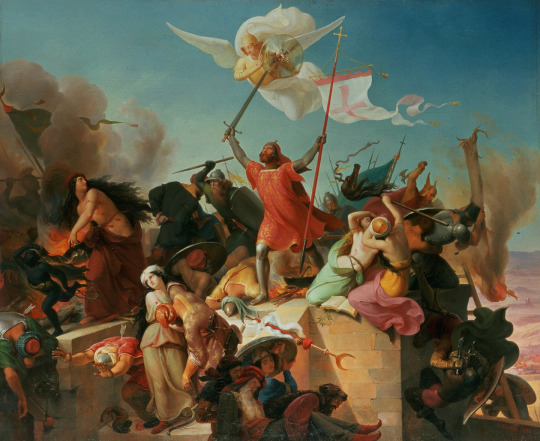
Godfrey of Bouillon by Heinrich Mücke
#godfrey of bouillon#godefroy de bouillon#frankish#crusader#jerusalem#first crusade#art#heinrich mücke#crusaders#crusade#crusades#medieval#middle ages#franks#knights#knight#history#holy war#european#christianity#christian#christendom#angel#angels#siege#battle#flag#standard#islam#muslim
35 notes
·
View notes
